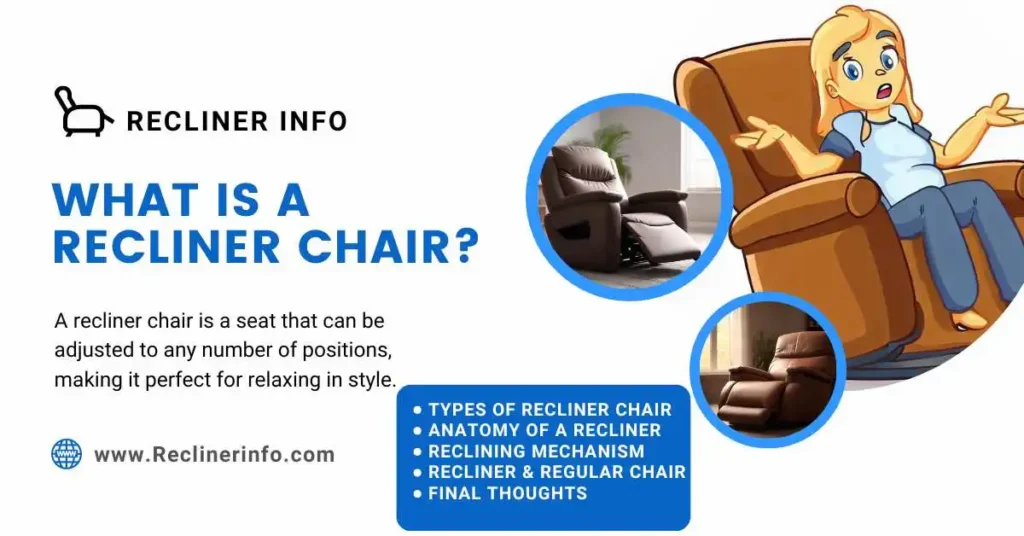Is sleeping in a recliner bad for your neck? This question is a popular one amongst people shopping for a reclining chair. But it’s not easy to find a clear answer since there are several factors that can influence the outcome.
The angle of the chair when it’s reclined, how long you sleep, and what position you sleep in all play a role in determining the impact of the recliner sleeping on your neck.
We’re not medical professionals, but we’ve done some digging and come up with some comprehensive research on this subject matter. According to a WebMD study, reclining at 135 degrees is the best angle for your spine – it minimizes pressure and provides support for both your neck and upper back. However, it’s worth noting that sleeping in a recliner while upright can cause muscular aches and tenderness.
There are some pros and cons to consider before taking the plunge. For instance, your neck might be happier with you if you choose to snooze in a recliner on a regular basis.
On the other hand, it could help alleviate some back pain or circulation issues. Plus, there are ways to make it more comfortable for your neck and body (like using pillows and stretching exercises).
Also check a few suitable recliners for neck pain relief here.
Contents
Is Sleeping in a Recliner Bad for Your Neck?
The Pros and Cons of Sleeping in a Recliner
Sleeping in a recliner has its ups and downs. Additionally, it can help improve certain medical conditions like sleep apnea or acid reflux since your head is elevated while you’re in this position.
Some people sleep more peacefully in a recliner than in a traditional bed. The most significant danger is spinal or cervical compression if you need to be more careful about getting the angle right.
Related: Find out Some Efficient Tips for Heart Patients to Sleep Comfortably in a Recliner.
First, Make the Recliner More Comfortable:
If you opt to rest in a recliner, you can take some simple steps to make it comfier. First, ensure that the angle of the recliner is adjusted correctly to support your back and neck.
It would help if you also used extra cushions to provide additional support. It’s likewise crucial to guarantee that you’re appropriately dressed for sleeping in a recliner.
The Best Sleeping Positions for Your Neck and Spine
No matter where you sleep, it’s critical to keep your spine and neck properly aligned to avoid pain or discomfort. To do this while sleeping in a recliner chair, use extra pillows for support and position yourself at a comfortable angle.
Assuming the spine position with a bolster that adequately supports your spine is one of the best ways to improve your sleep quality and safeguard your neck and spine health.

The Effects of Sleeping in a Recliner on Your Health
Sleeping in a recliner can have short-term and long-term effects on your health. In the short term, it may cause discomfort or pain in your neck or back. Over time, it could lead to chronic problems such as spinal misalignment or degeneration. To get the most benefit, fine-tune the degree of inclination of the recliner and augment your cushion count for added support.
Also check the impact of a recliner chair on Knees Health.
Tips for Sleeping in a Recliner Without Hurting Your Neck
If you’re experiencing discomfort in your neck while relaxing in your recliner, you can do a few things to ease the pain. Firstly, ensure that your recliner’s angle is set correctly to provide adequate support for your spine and neck.
Additionally, add some extra cushions to provide additional support. Taking periodic breaks throughout the day to stretch and move around can help alleviate any stiffness or discomfort caused by spending too much time in a recliner.
Neck Exercises for Recliner Users:
Resistance Exercises:
By reinforcing the musculature in your cervical spine, you can ease the discomfort resulting from poor postural habits, particularly in longstanding cervicalgia. To effect this, consider delicately situating a single palm directly anterior to your auditory orifice on the lateral aspect of your skull.
Stretching Exercises:
By strengthening the muscles in your neck, you can improve the discomfort caused by poor posture habits, especially if you have had cervicalgia for a long time. To do this, lightly place one hand directly in front of your ear on the side of your head and push against it with your head for 30 seconds.
How to Prevent Neck Stiffness from Recliner Sleep?
To avoid developing stiffness in your neck from sleeping in a reclined position, it is vital to use a supportive cushion that helps keep your spine aligned, adjust your recliner until you find a comfortable orientation, use a footrest to reduce stress on your lower back and limit how long you sleep in the recliner.
Is Recliner Sleep Bad for Your Spine?
Assuming that you’re reclining back, falling asleep in a recliner shouldn’t be a problem. But if you doze off while sitting up straight in the recliner, you put extra tension on your lower extremities and spine, which can cause discomfort.
Conclusion:
Is sleeping in a recliner bad for your neck? We have included every bit and piece in this guide to help you get the best and conclusive details on this topic. If you have any further questions, you can contact us via our comment section or email us for further assistance.
We look forward to you revisiting our blog and thank you for spending time on our blog.




